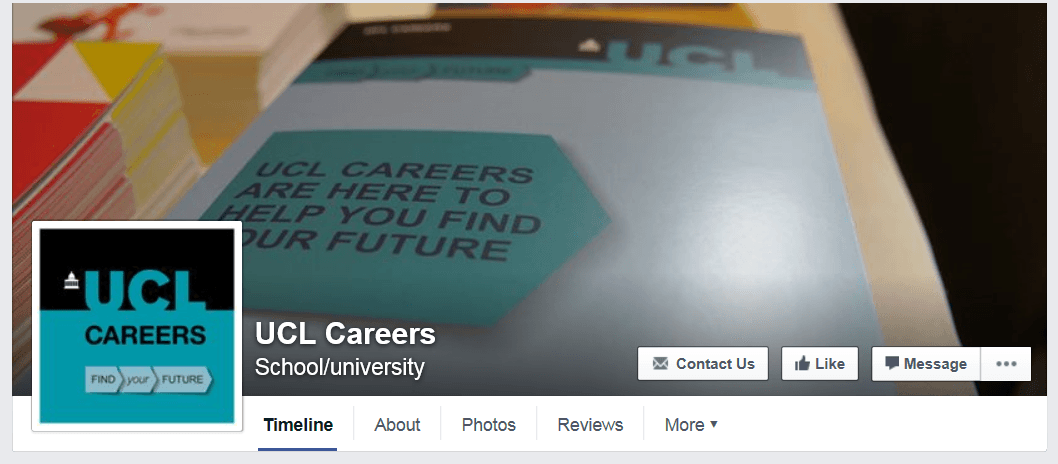Guest blog post by Claire Kilroy from Inspiring Interns
If you spent time abroad as part of your degree, hopefully the first thing that springs to mind when asked about it is what a great time you had. Since coming home, you’ve been bursting with stories about the amazing things you saw and did; in fact, you probably can’t remember the last time you told an anecdote that didn’t start with the words ‘When I was in…’
But it’s one thing to talk about your time abroad to family and friends; it’s another to try and explain to an interviewer why your experiences overseas make you the perfect hire. However, your year abroad can help you stand out from the crowd when applying for graduate jobs. Recent graduates are limited in terms of their work history, so having a range of other experiences you can draw on to illustrate your skills and competencies is vital.
Plus, in an increasingly internationalised work economy, many employers are on the hunt for global graduates. This means someone who will instinctively consider a wide range of perspectives and international influences when approaching an issue. If you’ve done a year abroad, you no doubt fall in this category. You just need to be able to prove it.
So, how should you go about it? Here’s some advice about how to change the way you think and talk about your year abroad to boost your employability:
Break it down
It’s easy to fall into generalisations when talking about your year abroad. So much will have happened that sometimes all you think to say is “It was awesome” – but that doesn’t tell the interviewer anything substantial about your experiences. Somehow, you need to organise your thoughts so that you can speak about specific events or subjects effectively.
Start off by asking yourself some simple questions. These might come up in an interview, but more importantly they provide a focus for your thoughts. Try to think of at least two or three points for each answer.
- Why did you choose to do a year abroad in the first place? What were you hoping to get out of it?
- Did you have to apply to go abroad? What steps did you take?
- What did you have to do before you went abroad? Did you have to set up a foreign bank account? Find accommodation? Did you encounter any difficulties?
- Did you do anything differently? Like join different societies, take up a new hobby, get a new interest?
- What was most daunting about going overseas? How did you cope?
- What were the most significant similarities / differences between the country you went to and here? What did you miss most about home and what do you now miss most from overseas?
- What was the highlight of your year abroad? Why?
- Do you think the experience changed you in any significant ways? Why / why not?
- Did you find it difficult adjusting to being home again?
Lead by example
In an interview, it’s not enough to claim you have a skill or throw around buzzwords like ‘international mindset’; it’s all about using examples drawn from your previous experiences to prove you’ve got the goods.
So take time to consider the competencies you want to show off at interview, and what experiences you can draw on from your year abroad. These might include:
Adaptability: this should pose no challenges in terms of coming up with examples – after all, you adapted to living in a different country. That means successfully navigating anything and everything from a confusing public transport system to a radically different academic system to simply a different pace of life. If you can manage that, you can manage change in a work environment. To give your answer depth, consider what you found most challenging about adapting, and how you overcame it.
Problem-solving: no doubt you encountered obstacles during your year abroad. These might be problems that required a long-term strategy – like needing to secure funding before you left – or ones that required you to think on the spot – like getting totally lost in a foreign city. Accommodation-related problems are also common, although hopefully you won’t have experienced anything quite as dramatic as one young man who came home to find all his furniture was gone because of a misunderstanding with the landlord.
Resilience: this is easily linked to your examples about problem solving. Resilience refers to how you cope under difficult circumstances or after suffering a setback – you want to show that you where able to keep moving forwards and maintained a positive attitude. Aside from practical challenges you could also talk more generally about coping with homesickness.
Communication: this is undoubtedly the foundation of a successful year abroad. Whether you were operating a foreign language or your native one, you’ll have come across numerous situations where you had to rely on your ability to communicate. Your landlord, your professors, your fellow exchange students, your friends… the list is endless.
Networking: though closely linked with communication skills, this is a chance to show off your ability to build and maintain strong relationships with those you met. Even just knowing you have people to stay with if you go back is a point in your favour, and you never know who might prove unexpectedly helpful in the future.
Goal-orientation: think about what you set out to do during your time away, and what you did to achieve this. You might have wanted to become fluent in the language, and taken extra classes or have chosen to stay with a host family that spoke no English. Or maybe you wanted to travel and see as much of the country as possible, and needed to be very organised with your time and budget.
Working collaboratively with people from diverse backgrounds and countries: employers consider this the most important ‘global competency’; they want to hire graduates who understand the complexity of cultural relationships and act accordingly. To have lived in and integrated into a foreign culture will set you apart from other graduates.
Apply your thoughts
Having structured your thinking about your year abroad, you should now find it easier to approach the type of questions you’ll face in an interview. Some questions might ask directly about your year abroad, while other more general questions might provide the perfect opportunity to bring in your experiences. Remember, you want to offer your interviewer answers with real substance, but that doesn’t mean you can’t show your enthusiasm for the topic!
Claire Kilroy is a content writer for the UK’s leading graduate recruitment agency, Inspiring Interns. Check out their website for listings of graduate jobs and internships, or head to their blog for more graduate careers advice.
 Close
Close






